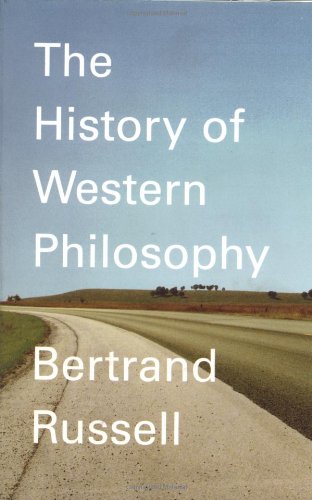Interview with Anurag Maunder SVP of Engineering at Kindred.ai
Published on Nov 6, 2018
5 min read


Location: San Francisco, CA
Current Role: SVP of Engineering at Kindred.ai
What’s your background and how did you get into management?
I did my Ph.D. in Computer Networking and joined Bell Labs. After a few years, I realized that I have a lot of passion for building products. This took me to Bay Area. Becoming a manager was quite organic. I proposed a project and was soon leading a team of engineers as a Tech Lead. I did this for a couple of years till the line between being a Tech Lead and Manager blurred!
When I started my own company, I had the responsibility for building the first product which organically translated into VP of engineering. I enjoyed the job ever since and I often switch between CTO and VP Engineering role on as needed basis!!
What are the biggest challenges you face?
One of the biggest challenges I face is hiring. It requires sustained effort to source and bring on the right talent to help drive our research and product development forward. Once we’ve onboarded any new candidate, it is important to get on the same page about team and company-wide goals. Right out of the gate, we need to be aligned so that we’re all marching toward the same objectives across teams.
At Kindred, we’re driven by results. We want our team members to aim for personal and professional progress and feel that individual excellence deserves to be recognized. We celebrate both individual and team wins, but also know how important it is for our people to maintain healthy work-life balance. As a manager, it’s important to me that my team is happy and fulfilled and I believe this balance, in turn, cultivates a strong collective work ethic.
What is your approach to hiring?
I take a holistic approach to the hiring process. I don’t like to be constrained to one source of candidates, so I take advantage of in-person introductions at industry meetups, LinkedIn, and references from trusted colleagues and existing team members. To stay ahead of the curve, Kindred looks to hire the top 1% of the applicant pool.
Diversity is a priority for us. By fostering an inclusive and diverse team, we reap the benefits of varying perspectives and ideas. It does take a conscious effort to increase diversity. I take a holistic approach to the hiring process. To stay ahead of the curve, Kindred looks to hire the top 1% of the applicant pool.
I don’t like to be constrained to one source of candidates, so I take advantage of in-person introductions at industry meetups and conferences that focus on AI and Robotics. I also always take references from trusted colleagues and existing team members.
We can’t innovate and solve complex problems without well-rounded input, and we strive to recruit developers who can challenge the status quo and collaborate to push our engineering forward. I do my best to curate well-rounded teams that are made up of the best talent I can find. It’s important to me that this group has articulation skills and demonstrates both domain expertise and self-awareness.
For example, here in the Bay Area, there is a vast diverse talent pool, and it comes down to taking the extra step of engaging with them. I highly recommend getting involved at a variety of industry conferences and meetups such as Grace Hopper Celebration and leveraging organizations specifically created to build diverse talent, such as Treehouse. And always reach out to people in your own private network.
What’s your advice for managers who are just starting out?
Management is a full-time job – one that is not done well when you revert to acting as an individual contributor for solving problems.
A former boss of mine used to say that “either you are a good communicator or you report to one.” I’ve kept this in mind throughout my career and think it encompasses a lot of the characteristics that every great manager embodies. Team communication requires a certain amount of self-awareness, a quality that sheds light on your personal strengths and weakness and allows you to learn from them.
As a manager, it is important to think of your role similarly to that of a liaison. You are representative of the upper management team as much as you represent your team. By filling in the gaps between the day-to-day teamwork and the leadership team, an effective manager can bring the company-wide goals and culture to life.
Whats your work day like and how do you manage your time, emails, etc.?
On a macro level, I always try to talk to my peers as much as possible. Through constant communication, I can diagnose when something in the process isn’t going right. If a project is taking more time than it should, it’s time to step back and look at the objectives and organization to identify what isn’t working. This communication also helps me to manage how we as a team are tracking toward the overall product roadmap and plan.
More tactically, I make sure to respond to all emails within 24 hours. I also employ color coded calendars, and do my best to strike a balance between internal and external meetings.
I also make a point to read one technical or business article or research paper every day. This helps me to stay aware of what’s going on outside of Kindred and across verticals.
What’s a personal habit that contributes to your success?
Aligning the engineering plan with business’ needs is a never-ending task. It isn’t cut and dry either, and so it requires my continuous attention on a rolling basis. To stay on top of both tracks, I anticipate the business’ needs and calibrate my team’s project pipeline accordingly.
I also rely on a constantly evolving to-do list and compile agenda points for all meetings to keep the gathering on track and make the best use of time.
Share an internet resource or tool that you can’t live without.
In terms of engineering tools, I use Confluence, Jira, and Build tools among others. But more generally, I think Google Slides are great for presentations. I also keep up to date with my LinkedIn news feed and like everybody else rely on my smartphone when I’m on the go. Nothing replaces learning from contacts and human beings. So using all these tools to get real and direct human insight on various technologies /challenges is what I cherish the most.
If you could recommend one book to managers, what would it be and why?
I like ”History of Western Philosophy” by Bertrand Russell. While a direct incentive-based management model works well with small teams it doesn’t work with larger teams. Everybody has different motivations and is in a different stage in his/her life. Philosophers all over the world have spent hundreds of years in understanding the basic human model. What motivates them, what makes them inquisitive and what terrifies them. This book is a great summary of human thought, its quest of learning models and cognitive evolution. Personally, this book gives me more tools than any other management book to understand how to organize teams to meet specific organizational needs of the time.
Where can we go to learn more about you?
You can find me on LinkedIn HERE.
This series asks engineering managers to share their experiences with the intent of helping other engineering managers learn and improve. Have someone you want to see featured or questions you think we should ask? Contact me.






